The Training program 6B11101 - “Tourism. Hospitality Management” is developed to train specialists in the field of service and maintenance, owning best practices in the management of the restaurant business, tour operator; hoteliers carrying out operational management, strategic planning, quality audit and monitoring, marketing promotion of the hotel business on mass media platforms, perfect mastering of information technologies in the field of tourism and services.
The purpose of the educational program is to train competitive specialists who are capable in the field of service and maintenance, who have advanced experience in managing the restaurant business, tour management; hoteliers who carry out operational management, strategic planning, audit and quality monitoring, marketing promotion of the hotel business, who are fluent in information technologies in the field of tourism and services.
The educational program is designed in such a way that it can be adapted to the individual needs of each individual student within the framework of educational standards.
Features of the educational program:
- Theoretical training in the fields of management, marketing, economic analysis of the activities of subjects of the tourism industry, the use of modern information technologies in tourism activities.
- Acquisition of practical skills in making competent decisions in the field of tour operators, travel agents, sightseeing and hotel services, catering services.
- Obtaining skills in organizing the tourism and hotel business according to international standards.
- Obtaining the necessary competencies for the implementation of projects in the MICE industry and the organization of various types of tourism.
In order to develop additional competencies complementary to students chosen profile, Minor programs are implemented, which consist of a track of thematically related elective disciplines.
Available Minors in the educational program:

Translator

Fundamentals of marketing and management
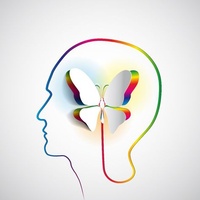
The basics of mediation and positive personal thinking
Improve communicative competence, which is the basis for professional activities of specialists in the field of services;
Train a specialist to develop and implement a tourism product that meets consumers’ requirements, organize integrated tourism services in the main sectors of the tourism industry;
Acquire comprehensive intellectual level, master a competent and developed speech, humanitarian culture, high moral, ethical and legal norms, a culture of thinking and skills in scientific organization of labor;
Development of creativity, initiative and innovation;
Students choosing individual education programs;
Providing targeted training for organizations;
Mastering fundamental courses at the intersection of sciences, guaranteeing them professional mobility at the international level;
Deepening of theoretical, practical and individual training of students along the chosen learning path;
Developing students' ability to self-improvement and self-development, needs and skills of independent creative mastery of new knowledge throughout their active life;
Training of specialists with a high level of professional culture, including the culture of professional communication, having a civil position, able to formulate and practically solve modern scientific and practical problems, and successfully carry out research and management activities;
Master fundamental courses at the intersection of sciences that guarantee students professional mobility at the international leve
Develop students' ability for self-improvement and self-development, needs and skills of independent creative mastery of new knowledge throughout their active life.
Key competencies in the training programThe ability to correctly formulate their thoughts in Kazakh, Russian and foreign languages, oral and written language skills;
The ability to demonstrate knowledge, skills, skills and competencies in the field of general education disciplines;
The ability to conduct research and project activities, including problem analysis, setting goals and objectives, identifying the object and subject of research, choosing the method and methods of research, working with information sources, owning academic writing, demonstrating a culture of academic integrity;
Ability to work in a team, interact with a team, jointly solve production tasks, possess business communication skills;
The ability to understand the role and importance of information and information technologies in the development of modern society, to master the methods of working with information, modern information networks, to be able to search, store, process and analyze information from various sources and databases, to apply information technology in solving professional tasks;
The ability to think creatively and critically, analyze, synthesize information when solving specific tasks, to defend one's point of view in a reasoned manner;
The ability to realize the social significance of his future profession, has motivation for personal development, the implementation of professional activities;
The ability to form and package a tour, develop a program of excursion and tourist-local history routes, animation projects and innovative services, monitor the implementation of technological processes in tourism activities, form contracts in the field of tourism;
The ability to analyze the activities of all departments of the hotel, restaurant, the current state of the global hotel and restaurant business, to draw up management schemes for hotel and restaurant complexes;
Possess the principles and methods of service planning and maintenance in the field of food and beverage production, is able to carry out quality control in the restaurant business;
Ability to demonstrate effective business and marketing communications in the organization, coordination and conduct of tour operator activities, hotel and restaurant business, creation of tourist services, as well as to develop inbound, outbound and domestic tours;
Possess techniques and methods of working with personnel, ways to improve the quality of labor productivity, the ability to make managerial decisions and evaluate the effectiveness of personnel management in the field of tourism and hotel business;
The ability to organize innovative projects and programs of business, sports, entertainment and educational events, to manage their organization with marketing research, budget development and control of the results obtained;
To know the specifics of pricing and basic income management strategies of a tourist and hotel enterprise, to assess the competitiveness and quality of goods and services;
The ability to analyze the main historical stages in the development of international and regional tourism, to determine their specific features and theoretical and methodological foundations, as well as to conduct a quantitative and qualitative assessment of the tourist and recreational potential of tourist regions of individual countries, in order to identify innovative directions of tourist flows and the development of new tourist products.
Types of professional activityOrganizational and managerial;
Production and technological;
Service and operational;
Consulting;
Methodical;
Scientific research;
Tourist and recreational.
Employability prospects for specialistsState bodies related to the organization of tourism (ministries, councils, their regional divisions and structures);
State and private companies engaged in hotel and restaurant business (restaurants, hotels and other structures);
Property units (enterprises, institutions, organizations) and other entities of the hotel industry;
Objects of tourism infrastructure;
Advertising agencies engaged in the promotion of tourism services in the national and foreign market;
Educational institutions that train mid-level tourism professionals;
Research organizations engaged in the promotion of tourism services in the national and foreign market;
Consulting companies of a tourist profile;
Marketing services of tourism enterprises;
Travel companies, firms and agencies, tour operator companies;
Airline agencies;
Sanatoriums, hotels, resort units;
Museums;
Clubs, federations, tourist and sports unions;
Tourist sites, recreational and health-improving structures of national and natural parks and lands;
Companies involved in the tranporting passengers;
Passport and visa services;
Customs;
Travel agencies;
Excursion bureaus;
Agencies involved in providing airline reservation;
Research organizations involved in the study of tourism development problems, etc.
The name of the organization for which dual training is implementedHD Project LLP;
Hilly Properties LLP;
Saryagash Tour LLP;
IP "AGENCY OF EFFECTIVE BRANDS;
IP "BONITO;
IP "Alipbaeva Zh.T.";
IP "Naka";
IP Zhusipov "Park Hotel al Bustan";
SKILLS AND COMPETENCIES
Organization, planning and support of health, recreation, religious tours
Organization of catering and service in the restaurant business
Event Management
Cross-cultural communication building, business communication
Production of visual photo and video promotional materials
Brand awareness and sales.
SMM маркетингTransformation of personal values and personal motivation. Adaptation to Stress and Mediation. Foundation of a healthy lifestyle. Cultural and Spiritual Development
Author's approaches to multilevel study of foreign languages
Advanced skills in working with a personal computer, office equipment and software in the professional field. Business Planning Basics
SPEAKERS AND MENTORS
Kalkabaev Azamat
Master of Business and Management, hotelier, founder and director of the management company ‘KHANSHAIYM GROUP’
Janabi Jafar
Founder of the Restaurant Consulting and Management Company "Masters Group", director of the restaurant "Chester".
Experience in the hotel and restaurant business 11 years.
Among Start-Up projects, restaurants such as Chester Restaurant, CinZZano, Latte Coffee, Unipub, Sirius, Studio 021Suleiman Saule
Director of LLP "AGENTSTVO EFFECTIVNYH BRENDOV"
Shotaeva Kalzhan
General Manager at the City (Hotel, Hostel, Shopping Gallery), Master of Business and Management
Toyshybek Balnur
Tourism Manager of the tour operator "Zeta Tour"
Yuldashev Abdulaziz
COO ‘Rixos Khadisha Shymkent’
Khalkulov Diaz
Operations manager at the Company "Diamond Service"
Seytkasym Dana
Hotelier-practitioner, experience in the hospitality industry for more than 10 years. Successful professional experience in international chain hotels Rixos Hotels (Kazakhstan), FRHI (Russia, Singapore), Hilton Worldwide (Kazakhstan), Wyndham Worldwide (Kazakhstan) and in Kazakhstan hotels
OUR PARTNERS

Inn "Canvas"
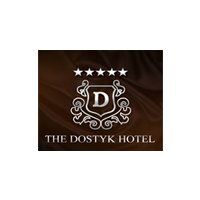
Inn "Dostyk"
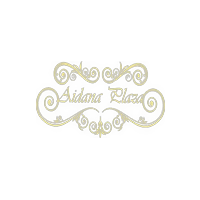
Aidana Plaza Hotel
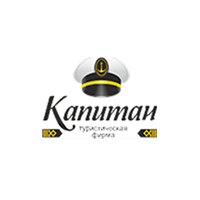
Travel agency "Captain"
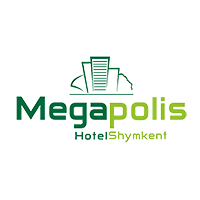
Inn "MEGAPOLIS"
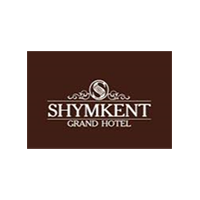
Hotel "Shymkent"
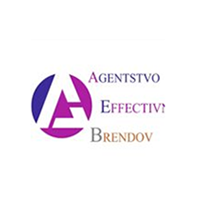
LLP "AGENTSTVO EFFECTIVNYH BRENDOV"
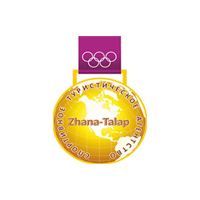
Travel agency "Zhana Talap"
EMPLOYMENT
Hotel and restaurant business
State tourism authorities
Travel agencies
Hotels and recreation areas
CAREER & INCOME
Tour manager — from 75 000 to 200 000 KZT
Hotel Service Manager — from 90,000 to 200,000 KZT
Receptionist — from 95,000 to 150,000 KZT
ADMISSION
On the School basis
- Documents:
UNT, ID
- Entrance tests:
Not applicable
- Training period:
3 years +Second higher education
- Documents:
Diploma, ID
- Entrance tests:
Job interview
- Training period:
Minimum 1 year 8 monthsBased on TVE (College)
- Documents:
UNT, ID
- Entrance tests:
Not applicable
- Training period:
Min: 2 years 6 months
Makhazhanova Zhanar. Graduated in 2012. Currently: SKR ‘Tourism Department’, Leading Specialist
Gritsuk (Yakim) Kristina. Graduate of the specialty "Tourism" (2016). Graduate of Miras University Master's degree in Management (2018) Occupation: manager at the reservation department at ‘Shymkent Grand Hotel’
Abdurakhmanov Nurmuhammad. Graduated in 2016. Director at the travel agency "SKYLINE"
Abu Nurdaulet. Graduated in 2017. Tourist information center "TURKISTAN TOURISM CENTER" manager-programmer of Nefteremmash LLP - accountant
Aisheva Togzhan. Graduated in 2017. Tourist Information Center "TURKISTAN TOURISM CENTER" manager
Independent Kazakhstan Agency for Quality Assurance in Education - IQAA. Certificate of Specialized Accreditation SA No. 0130/4 of 01.29.2018
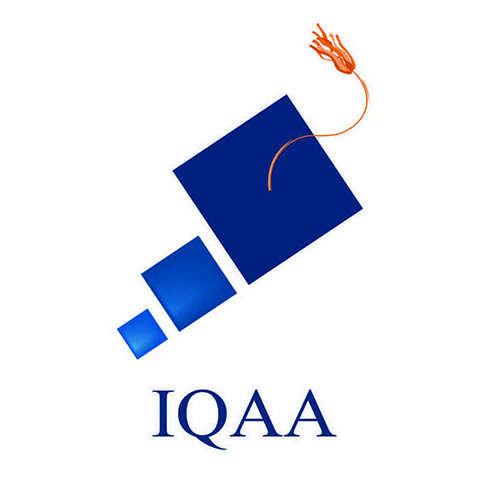
Makhkambaeva M., Akramova M., Esmyrza M. gr. TR-711r-1, TR-611k-1 underwent a 3-month internship at ‘Zhana Talap Travel Agency’ (certificates)
Sabyr A. gr. TR-811k-1 MSNPK on the topic "Actual issues of modern student science: realities and prospects" (2018) 1st place
Bastarbek M., Aydar A. group TR-811k-1. Participation at the International Students Research and Practical Conference with the theme "Topicality of contemporary student research: realities and prospects" (2018) diploma, 2nd prize
Baghdat Miras. grup TR-711k-1. Participation at the International Spartakiad "International Universities Save and Rescue Games 2019", Republic of Northern Cyprus., 2019
Babik Yu., Beloenko V., Khabirov R. gr. TR-711r-1. Participation at the II Republican distance contest of research papers of students "Modern Science" Scientific and Methodological Center "ZIAT" (Diploma for 3rd prize)
Uznovenko A., Magzumova A. summer internship in Kemer, Turkey., Organized by the Miras University in cooperation with the Granat recruiting agency
Dzhumadilov E. Winner of the National Award "NATIONAL TOURISM AVARDS 2018" in the competition for ACHIEVEMENTS in the field of development and promotion of inbound and domestic tourism in the Republic of Kazakhstan in the nomination "Best tour guide".
Typical curriculum of the educational program 6B11101 Tourism. Hospitality Management
Name of disciplines Cycle of disciplines ECTS Brief description of the disciplines Kazakh (Russian) Language GED 5 Issues under study: phonetic features, grammatical structure of the Kazakh language; basic vocabulary by fields of application (household, terminological, general scientific, business); methods of word formation, phraseological units; rules of translation technique; rules of spelling and punctuation; culture and traditions of Kazakhstan; rules of speech etiquette; rules of communicative behavior in situations of everyday, business, scientific and professional communication. Formed competencies: implementation of oral communication in dialogical and monological forms in situations of everyday, scientific, professional and business communication; implementation of communicative intentions in various types of written speech; maintaining contacts using e-mail; possession of communication skills in the process of official and informal contacts, in the field of everyday and professional communication; public speech skills; oral and written translation skills. Foreign Language GED 5 Issues under study: phonetic features, grammatical structure, of the English language; basic vocabulary by fields of application (household, terminological, general scientific, business); methods of word formation; rules of translation techniques; rules of spelling and punctuation; rules of speech etiquette; intercultural features and rules of communicative behavior in situations of everyday, business, scientific and professional communication. Formed competencies: implementation of oral communication in dialogical and monological forms in situations of everyday, scientific, professional and business communication; implementation of communicative intentions in various types of written speech; possession of communication skills in the process of official and informal contacts, in the field of everyday and professional communication; public speech skills; oral and written translation skills. Fundamentals of Law GED 5 Issues under study: law and its place in the system of social regulation; the main forms (sources) of law; legal norms and legal relations; lawful behavior and offenses; the basics of the legal status of a person and a citizen of the Republic of Kazakhstan, the main branches of law, etc. Formed competencies: orientation in matters of current legislation; possession of skills in analyzing normative legal acts, relations regulated by law, legal analysis of information; application of legal norms in specific situations, following moral and legal norms in everyday practice; expression and justification of one's own point of view on legal issues; conducting polemics in the legal field. Physical Education GED 2 Issues under study: the discipline is focused on the consideration of the following issues: the importance of physical culture in human life; the values of physical culture and sports; factors that determine human health; the concept of a healthy lifestyle and its components; methodological foundations of physical education, the foundations of self-improvement of physical qualities and personality traits; the influence of health-improving systems of physical education on health promotion. Formed competencies: demonstration of the implementation of mandatory and individually selected complexes of physical exercises, including recreational and adaptive physical culture; maintaining a healthy lifestyle; maintaining and developing basic physical qualities in the process of physical culture; possession of means and methods of strengthening individual health, physical self-improvement, various forms of motor activity for successful socio-cultural and professional activities. Bases of Anticorruption Culture GED 5 Issues under study: the essence of corruption as a social and legal phenomenon; the manifestation of corruption in public life; the measure of moral and legal responsibility for corruption offenses; the current legislation in the field of combating corruption; prevention of offenses. Formed competencies: orientation in matters of current legislation; possession of skills in analyzing normative legal acts, relations regulated by law, legal analysis of information; application of legal norms in specific situations, following moral and legal norms in everyday practice; expression and justification of one's own point of view on issues of law and anti-corruption culture; conducting polemics in the legal field. Oratory Art BD 5 Issues under study: the main categorical apparatus of public speaking; the history of public speaking; strategies and tactics of effective speech communications; an algorithm for creating an effective public message; discussion and polemics. Formed competencies: the ability to clearly express their thoughts, feel confident during communication and speech; possession of voice and expressiveness of speech; managing the attention of listeners; the ability to answer unexpected questions, effectively convince opponents and influence listeners; possession of methods and techniques for analyzing the partner's speech behavior, methods of self-control. Ecology and life safety GED 5 Issues under study: the content and tasks of ecology; the concepts of the ecosystem and the biosphere; the circulation of substances and the flow of energy in ecosystems; global problems of humanity; legislative measures for nature protection; conditions for the occurrence of environmentally hazardous and emergency situations, patterns of their manifestation; classification, characteristics and forecasting of emergencies; development and implementation of measures to protect humans and the environment from negative impacts, first aid, etc. Formed competencies: assessment of the impact of environmental factors on human health; identification of the main hazards of the human environment; choice of methods of protection against hazards; possession of methods and technologies of protection in emergency situations; ability to provide first aid self-and mutual assistance; effective action in the event of a threat and occurrence of extreme situations and emergencies; determination of symptoms of the human body in case of injuries; correct use of first aid kits. Social and Political Studies Module (Sociology, Political Science, Cultural Studies, Psychology) GED 8 Issues under study: the main categories of political science, sociology, cultural studies and psychology; socio-ethical values of society; social, political, cultural, psychological institutions of society in the context of their role in the modernization of Kazakh society and the principles of their functioning. Formed competencies: explanation and interpretation of concepts, ideas, theories of sociology, political science, cultural studies, psychology; description, analysis of current problems of modern Kazakh society, social processes; analysis of the features of social, political, cultural, psychological institutions in the context of their role in the modernization of Kazakh society; designing prospects for the development of Kazakh society, solving social, political, personal problems, interpersonal and social conflicts; expressing one's own opinion on issues of social significance; generating ideas on issues of socio-political development of society and presenting them. Fundamentals of Economics and Entrepreneurship GED 5 Issues under study: the role and importance of the economy in the life of society; the laws of production, exchange and distribution of material goods; the theoretical foundations of the functioning of the market economy; the fundamentals of the enterprise economy; the content and essence of entrepreneurship; types and forms of entrepreneurial activity. Formed competencies: application of economic knowledge in specific situations; implementation of economic calculations; determination of one's own capabilities in carrying out entrepreneurial activity; use of knowledge of the basics of entrepreneurship for organizing one's business; development of a business plan; readiness to create an entrepreneurial unit and organization of its activities. Fundamentals of innovation and innovation activity GED 5 Issues under study: the essence of the concepts of ""innovation"", ""innovative activity"", ""innovative project""; classification of innovations; factors determining innovative activity; sources of innovative ideas; priorities of innovation policy at various levels of economic management; the main models of innovative development. Formed competencies: analysis and evaluation of innovative projects; planning of work on the implementation of innovations, presentation of innovative projects; implementation of business planning of innovative projects. Fundamentals of leadership and team building GED 5 Issues under study: the essence of the concepts of ""leadership"", ""team"", ""team building""; leadership models and their typology; leadership styles; models of leadership decision-making, technologies of team formation. Formed competencies: analysis and evaluation of leadership styles; assessment of the conditions and consequences of the implementation of various leadership styles; methods and techniques of team formation. Fundamentals of Academic writing BD 5 Issues under study: the concepts of ""academic writing"", genres of academic writing (abstract, essay, review, abstract, scientific article, etc.), the basic principles of compiling and formatting academic texts and their presentation. Formed competencies: creation of written academic texts of various genres; design of a written text in accordance with accepted norms, requirements, standards; skills and abilities of compiling a bibliographic description of printed publications and electronic resources; skills of analytical work with scientific sources; editing of academic texts; critical evaluation of written works. Workshop on the development of critical and creative thinking BD 5 Issues under study: the nature, structure, functions of critical and creative thinking and methods of their formation; models of critical thinking; methods of stimulating, functions, types of creative thinking; the current state of decision-making theory; conceptual support for the decision-making process; tools of critical and creative thinking necessary for decision-making; types, strategies and methods of decision-making. Formed competencies: the ability to distinguish critical and creative ways of thinking from other forms of intellectual activity; possession of methods and techniques of creative thinking; the use of various models of critical and creative thinking in practice; the implementation of a critical analysis of the situation in the decision-making process based on awareness and interpretation procedures; the formulation and reasoned defense of one's own position on various problems, as well as the correct refutation of the opponent's position. Psychology of communication and conflict management BD 5 Issues under study: the essence of communication; communicative, interactive, perceptual aspects of communication; communication functions; communication structure; types of communication; communication models; verbal and non-verbal means of communication; communication levels; the social nature of conflicts; causes of conflicts; types of conflicts; dynamics and mechanisms of conflict; conflict management in the organizational system. Formed competencies: application of techniques and techniques of effective communication in professional activity; possession of methods of self-regulation of behavior in the process of interpersonal communication; possession of methods of interpersonal, intercultural, interethnic and business communication; identification of the causes of conflicts; management of the conflict process and their behavior in conflict; analysis of conflict situations; use of knowledge in the field of conflict management in practice for the prevention and resolution of conflict situations in the field of management; organization of negotiations and the use of various technologies of the negotiation process in practice. History of Kazakhstan GED 5 Issues under study: basic facts, processes and phenomena, concepts, theories, hypotheses characterizing the integrity and consistency of the integrity of the historical process; periodization of world and national history; modern versions and interpretations of the most important problems of national and world history; features of the historical path of Kazakhstan, its role in the world community. the most important methodological concepts of the historical process, their scientific and ideological basis; features of historical, historical-sociological, historical-political, historical-cultural, anthropological analysis of events, processes and phenomena of the past; historical conditionality of the formation and evolution of public institutions, systems of social interaction, norms and motives of human behavior; interrelationship and features of the history of Kazakhstan and the world, national and regional, confessional, ethnonational, local history. patterns of social development; features of development of Kazakhstan; the main historical facts and events of the socio-economic and political life of Kazakhstan at all stages of its development. Formed competencies: formation of objective historical knowledge about the main stages of the history of Kazakhstan from the ancient era to the present day, about the continuity and continuity of ethnogenesis, the formation and development of the statehood of the Kazakh people; mastering knowledge about the main stages of the development of human society from antiquity to the present day in the social, economic, political, spiritual and moral spheres with special attention to the place and role of Kazakhstan in the world-historical process; the development of the ability to analyze information contained in various sources about events and phenomena of the past and present, guided by the principle of historicism, in their dynamics, interrelation and interdependence, and the formation of historical thinking — the ability to consider events and phenomena from the point of view of their historical conditionality, to compare different versions and assessments of historical events and personalities, to correlate their views and principles with historically emerged worldview systems, to determine their own attitude to the controversial problems of the past and present. Technique and Tactics of Active Tourism PD 5 Issues under study: basic concepts of techniques and tactics of active types of tourism; domestic and foreign classification of active tourist travel; content and methodology of drawing up tactical developments in active types of tourism; catering in active tourist travel; physical preparation for active tourist activity; general characteristics of equipment for active tourist travel; ensuring safety when engaged in tourism; features of tourist and recreational resources of Kazakhstan; characteristics of mountain and water travel. Formed competencies: formation of knowledge about the technique, tactics and organization of active travel in various types of tourism as one of the most promising forms of activity of tourist structures in Kazakhstan, taking into account the regional characteristics of tourist and recreational resources of Kazakhstan; mastering the skills to promote the development of active types of tourism, taking into account technical and tactical techniques aimed at professional training of specialists in the tourism industry. Physical Education GED 3 Issues under study: the discipline is focused on the consideration of the following issues: the importance of physical culture in human life; the values of physical culture and sports; factors that determine human health; the concept of a healthy lifestyle and its components; methodological foundations of physical education, the foundations of self-improvement of physical qualities and personality traits; the influence of health-improving systems of physical education on health promotion. Formed competencies: demonstration of the implementation of mandatory and individually selected complexes of physical exercises, including recreational and adaptive physical culture; maintaining a healthy lifestyle; maintaining and developing basic physical qualities in the process of physical culture; possession of means and methods of strengthening individual health, physical self-improvement, various forms of motor activity for successful socio-cultural and professional activities. Foreign Language GED 5 Issues under study: phonetic features, grammatical structure, of the English language; basic vocabulary by fields of application (household, terminological, general scientific, business); methods of word formation; rules of translation techniques; rules of spelling and punctuation; rules of speech etiquette; intercultural features and rules of communicative behavior in situations of everyday, business, scientific and professional communication. Formed competencies: implementation of oral communication in dialogical and monological forms in situations of everyday, scientific, professional and business communication; implementation of communicative intentions in various types of written speech; possession of communication skills in the process of official and informal contacts, in the field of everyday and professional communication; public speech skills; oral and written translation skills. Kazakh (Russian) Language GED 5 Issues under study: phonetic features, grammatical structure of the Kazakh language; basic vocabulary by fields of application (household, terminological, general scientific, business); methods of word formation, phraseological units; rules of translation technique; rules of spelling and punctuation; culture and traditions of Kazakhstan; rules of speech etiquette; rules of communicative behavior in situations of everyday, business, scientific and professional communication. Formed competencies: implementation of oral communication in dialogical and monological forms in situations of everyday, scientific, professional and business communication; implementation of communicative intentions in various types of written speech; maintaining contacts using e-mail; possession of communication skills in the process of official and informal contacts, in the field of everyday and professional communication; public speech skills; oral and written translation skills. Introduction to Practice BD 2 The educational practice is aimed at obtaining primary professional skills in the field of tourism and hospitality management, the formation of a stable interest in the profession, professional orientation. Basics of tourism BD 5 Issues under study: tourism as a complex object of study; tourism as a tourist system; tourism and sustainable development; education and career in tourism; international experience and global trends in tourism. Formed competencies: formation of knowledge about the concept of sustainable development and the role of tourism in this process; understanding of the social responsibility of the tourism industry; knowledge of the main directions of education, career growth and self-development of personnel in the tourism industry; skills of analyzing international experience and global trends in tourism. Philosophy GED 5 Issues under study: categories of philosophy, philosophical understanding and understanding of the role and place of education, science, technology, technology, man, art, freedom, culture, religion in society, methods of scientific knowledge, the evolution of philosophical thought from antiquity to the present. Formed competencies: understanding and explaining the specifics of the philosophical understanding of reality; interpretation and justification of the content and specific features of the mythological, religious and scientific worldview; demonstration of methods of scientific and philosophical knowledge of the world in the implementation of project and research activities; argumentation of one's own position in relation to topical philosophical issues, global problems of modern society. Physical Education GED 3 Issues under study: the discipline is focused on the consideration of the following issues: the importance of physical culture in human life; the values of physical culture and sports; factors that determine human health; the concept of a healthy lifestyle and its components; methodological foundations of physical education, the foundations of self-improvement of physical qualities and personality traits; the influence of health-improving systems of physical education on health promotion. Formed competencies: demonstration of the implementation of mandatory and individually selected complexes of physical exercises, including recreational and adaptive physical culture; maintaining a healthy lifestyle; maintaining and developing basic physical qualities in the process of physical culture; possession of means and methods of strengthening individual health, physical self-improvement, various forms of motor activity for successful socio-cultural and professional activities. French (A1 level) BD 5 Issues under study: practical communication skills in oral and written form in French; linguistic, discursive, socio-strategic competencies, the basics of oral and written forms of communication. Formed competencies: possession of communication skills in oral and written form in French; formation of communicative competence, the components of which are linguistic, discursive, sociorategic competencies, demonstration of the basics of oral and written forms of communication. German language (level A1) BD 5 Issues under study: practical communication skills in oral and written form in German; linguistic, discursive, sociorategic competencies; the basics of oral and written forms of communication. Formed competencies: possession of communication skills in oral and written form in German; formation of communicative competence, the components of which are linguistic, discursive, sociorategic competencies, demonstration of the basics of oral and written forms of communication. Arabic (level A1) BD 5 Issues under study: practical communication skills in oral and written form; linguistic, discursive, socio-strategic competence, forms of oral and written communication. Formed competencies: mastering communication skills in oral and written form in Arabic; formation of communicative competence, the components of which are linguistic, discursive, socio-strategic competencies, demonstration of the basics of oral and written forms of communication. Organization of project activities BD 5 Issues under study: the basics of project activity; design technologies; implementation and effective project management; methods of collecting initial data and design methods, methods of project development and implementation. Formed competencies: knowledge of methods of collecting and analyzing information; design and preparation of projects; possession of tools for organizing project activities; setting goals and objectives at each stage of project implementation; development of ways to solve the problem; practical application of design methods in professional activities. Information technologies in the professional activity of a specialist in the service sector BD 5 Issues under study: the composition and functions of information and telecommunications technologies, the possibilities of their use in the professional activity of a specialist in the field of services; the basic rules and methods of working with application software packages; the concepts of ""information systems"", ""information technologies""; theoretical foundations, types and structures of databases; the possibilities of network technologies for working with information. Formed competencies: the use of software in the professional activity of a specialist in the field of services; the use of computer and telecommunications tools; skills of working with information reference systems; the use of application programs in professional activities; the ability to use the resources of local and global information networks. Technology of professional success of a specialist in the service sector BD 5 Issues under study: social functions and significance of tourism and hospitality management, value bases of professional activity of a specialist in the service sector; requirements for personal and professional qualities of a specialist in the service sector; regulatory documents regulating the activities of a specialist in the service sector; outstanding specialists in the service sector; career development trajectories, professional ethics. Formed competencies: demonstration of the ability and readiness to understand modern issues in the field of tourism and the hotel business, professional ethics; application of the principles and rules of professional ethics and etiquette in professional activity; possession and demonstration of individual features of professional image modeling; possession of methods of professional and personal image. Hotel business BD 7 Issues under study: the basic concepts and categories of the hotel business; the history of the hospitality industry; the structure of the hotel industry; the interaction of hotel departments and understanding of the current state of the hospitality services market; prospects for its development. Formed competencies: formation of knowledge in the field of hospitality; skills of organizing the hotel business; knowledge of existing hotel classification systems; skills of working with literary sources and regulatory materials on state regulation of tourism; possession of technology for serving guests in accommodation facilities; possession of skills for creating new hotel products and services using modern technologies and design methods. Technologies of the hotel industry BD 7 Issues under study: the history of development and the modern structure of the hotel industry; the organization and management of a hotel enterprise; the main service technologies used in a hotel enterprise. Formed competencies: demonstration of knowledge about modern classification systems of hotel enterprises; possession of the basic provisions on the technology of organizing the hotel business; skills and abilities of interaction with customers, designing the activities of the main services of hotel enterprises. Business communication BD 5 Issues under study: the concepts of "communication" and "business communication", structure, functions, types and forms of business communication, methods and techniques of business communication in its various forms and with different types of interlocutors. Formed competencies: formation of theoretical knowledge and necessary practical skills for effective business communication, knowledge of the concepts of "communication" and "business communication", structure, functions, types and forms of business communication, methods and techniques of business communication in its various types and with different types of interlocutors. Information and Communication Technologies GED 5 Issues under study: the content and trends in the development of information and communication technologies; methods of collecting, storing and processing information, methods of implementing information and communication processes; conceptual foundations of the architecture of computer systems, operating systems and networks; architecture of computer systems and networks, the purpose and functions of the main components; concepts for the development of network and web applications, information security tools. Formed competencies: skills of using modern information and communication technologies in various fields of professional activity, scientific and practical work and other purposes; justification of the choice of the most appropriate technology for solving specific tasks; the ability to use Internet information resources, cloud and mobile services for searching, storing, processing and distributing information; the ability to use software and hardware of computer systems and networks for data collection, transmission, processing and storage; analysis and justification of the choice of methods and means of information protection; the ability to develop data analysis and management tools for various types of activities; implementation of project activities using modern information and communication technologies. Organization and maintenance of a bar PD 3 Issues under study: bars, their types and characteristics; organization of work in the bar; equipment, inventory and dishes in the bar; job responsibilities and professional ethics of the bartender; preparation of the bar and the bartender for work; safety and fire safety measures at the workplace of the bartender; technology for preparing cocktails and mixed drinks. Formed competencies: theoretical knowledge about the basics of modern bar management, built on international quality standards for the production and sale of hospitality services with the use and possibility of testing developments in the object of scientific research; the formation of social relations in society, the basics of environmental safety of hotel activities and the environment. Bar business PD 3 Issues under study: general characteristics of the service process; general information about bars; viticulture and winemaking; consumption culture and tasting of wines and beverages; alcoholic beverages (basic); dishes and bar equipment; classification and methods of preparing mixed drinks (cocktails); cocktails aperitifs and cocktails digests; group mixed drinks. Formed competencies: knowledge, skills and abilities in the field of bar business; formation of practical skills in the field of organizing the work of the bar, characteristics of wine and vodka products, beverages, delicatessen products and dishes, technologies for preparing mixed drinks. French (level A2) BD 5 Issues under study: practical communication skills in oral and written form in French; listening and understanding of the speech of teachers, students and native speakers; the technique of reading a foreign language text. Formed competencies: acquisition of practical communication skills in oral and written form in French; listening skills and understanding of the speech of teachers, students and native speakers; skills of reading a foreign language text; skills of searching and extracting information from read texts; skills of graphically, punctuation and spelling literate writing. German (level A2) BD 5 Issues under study: practical communication skills in oral and written form in German; listening and understanding of the speech of teachers, students and native speakers; the technique of reading a foreign text. Formed competencies: acquisition of practical communication skills in oral and written form in German; listening skills and understanding of the speech of teachers, students and native speakers; skills of reading a foreign language text; skills of searching and extracting information from read texts; skills of graphically, punctuation and spelling literate writing. Arabic language (level A2) BD 5 Issues under study: practical communication skills in oral and written form in Arabic; listening and understanding of the speech of teachers, students and native speakers; the technique of reading a foreign language text; the skills of graphically, punctuation and spelling literate writing. Formed competencies: acquisition of practical communication skills in oral and written form in Arabic; listening skills and understanding of the speech of teachers, students and native speakers; skills of reading a foreign language text; skills of searching and extracting information from read texts; skills of graphically, punctuation and spelling literate writing. Production practice 1 [TR] BD 5 Industrial practice 1 is aimed at obtaining professional skills in the field of tourism and hospitality management, forming an interest in the profession, allowing you to navigate the labor market and find yourself in a future profession. Organization and technology of service in hotels PD 3 Issues studied: types of organizational management structures in the hotel business; technology and organization of the main services of the hotel complex; technology and organization of the work of auxiliary services of the hotel complex. Formed competencies: the ability to analyze the activities of functional departments of hotels and other accommodation facilities, the level of customer service, the ability to draw appropriate conclusions; the ability to control the implementation of technological processes and job descriptions in hotel activities, the ability to organize work to confirm compliance with the classification system of hotels and other accommodation facilities. History of tourism and hospitality BD 4 Issues studied: familiarization with the main stages of tourism and hospitality development; mastering the conceptual apparatus describing the specifics of the hospitality industry and the processes taking place in it; mastering the theoretical foundations of the organization and implementation of tourist activities. Emerging competencies:knowledge of the features of the hospitality industry and the specifics of its work; the reasons for the development of the hospitality industry and its importance for the development of modern tourism; the ability to analyze and compare the features of the development of the hotel business; evaluate and be able to predict the prospects for the development of the hotel industry; systematize and summarize the information received and apply knowledge in practice. Branding and brand management [minor] PD 5 Issues under study: the role and importance of branding; strategic brand management; implementation of brand marketing complex; brand identity and individuality as a key task of brand management; development of brand identifiers; brand management research; qualitative and quantitative methods of brand research; brand positioning concept; brand communications management; interaction management with consumers; brand portfolio management; brand strategies in brand development; merchandising policy in branding; brand capital management; legal aspects of branding. Formed competencies: the formation of key competencies in the field of branding, i.e. the development of a professional view of the activities of creating and managing brands, which will help in the future to develop competitive and protectable trademarks, determine their positioning and image, manage their development taking into account the marketing strategies of the company. Interpretation practice (minor) PD 5 Issues under study: language tools in various pragmatic situations, depending on the specifics of the audience; the formation of interpretation skills based on highly specialized texts; the development and consolidation of methods and tools of translation technology; Formed competencies: the ability to choose lexical units in accordance with the knowledge of the subject of translation, to perform various translation transformations based on the use of lexical and grammatical transformations, to transmit terms of a special orientation, to highlight the technique of writing in sequential translation and ""decoding"" recorded sentences, to conduct translation activities in accordance with the place and context of translation. Basics of mediation (minor) PD 5 Issues under study: the main provisions of normative acts applied in the field of mediation; theoretical knowledge in the field of prevention, settlement and resolution of disputes, organization of negotiations with the participation of a neutral mediator (mediator); Emerging competencies: the ability to apply this knowledge in subsequent practical activities. Geography of International Tourism BD 5 Issues under study: Europe: general characteristics of Europe; tourist characteristics of Northern Europe; Western Europe; Southern Europe and the Eastern Mediterranean countries; Central and Eastern Europe (excluding the CIS and Baltic countries); CIS and Baltic countries; America: general characteristics of America. North America; Central and South America, the Caribbean region; Asia and the Pacific region: general tourist characteristics of Asia and the Pacific region. Northeast Asia; tourist characteristics of South Asia, Southeast Asia and Oceania; African macroregion: tourist characteristics of Africa; Near and Middle East: tourist characteristics of the Near and Middle East. Formed competencies: the formation of a spatial and factual understanding of the tourist resources of continents and individual countries. Tour operating PD 5 Issues under study: the basics of tour operating: the concept and types of activities of a tour operator; creation of an attractive tourist product; classes of services; package of services; tour design; service program; service providers; tour planning, contractual plan; negotiations with service providers; conclusion of contracts with service providers, an agreement between tour operators; tourist documentation; visa support; promotion of a tourist product: formation of a sales network, characteristics of the main forms of sale of a tourist product; selection of sales partners; agency agreement; methods and regulatory basis for advertising a tourist product, tactical decisions on advertising; non-advertising methods of promotion, sales promotion and promotion of a tourist product; tour operator's catalog as the main information carrier for promoting a tourist product; participation in exhibitions; organization of tourist services: service strategy and management; program tourism as the basis of modern tour operating and tourist services; service animation; foreign representatives of tour operators; quality of service and ways of its regulation. Formed competencies: knowledge of the basics of tour operating, the principles of organizing tourist services; the ability to form a sales network of a tour operator and promote a tourist product; the ability to draw up tourist documentation of a tour operator, provide visa support for those leaving and entering the country; skills in organizing the safety of tourists during travel; knowledge of qualification requirements for a tour operating manager. Organization of transport services in tourism PD 5 Issues under study: transport services for tourists; transportation of tourists by air; transportation of tourists by rail; transportation of tourists by road; transportation of tourists by water; transportation of tourists by other modes of transport; procedures related to transport services for tourists. Formed competencies: knowledge of the totality of all branches and enterprises of transport, both performing transportation and ensuring their functioning and maintenance, as well as the basics of logistics, the organization of service points on the routes, as a means of communication with tourists; the ability to develop and implement effective programs for the development of transport and communication base in tourism. Guided tours PD 5 Issues under study: the basics of guided tours: guided tours as a science; the essence of the excursion; the functions and signs of the excursion; the excursion method of cognition; the excursion as a pedagogical process; elements of psychology in the excursion; logic in the excursion; the classification of excursions; the subject and content of excursions; the display in the excursion; the story in the excursion; the combination of the display and the story in the excursion, the excursion methodology: the excursion methodology and ways to improve it; the technology of preparing a new excursion; drawing up the route of the excursion; the methodology of conducting excursions; the mechanics of conducting excursions, the professional skills of the guide: the guide is a profession; the personality of the guide; the guide's skills; the skills of the guide; the guide's speech; non-verbal means of communication. Formed competencies: knowledge of the basics of excursion theory, methodology and methodology, the basics of professional skills of the guide; the value of the excursion as a pedagogical process; possession of the skills of conducting various types of excursions. Program tourism BD 5 Issues under study: the basics of program tourism; recreational basics of program tourism; types of services and service program; motivation of program tourism; resort and health tourism; educational tourism; entertainment tours; eco-tourism; business tourism; sports tourism; educational tours; family tourism; hobby tours. Formed competencies: knowledge of the concept and basics of program tourism, program services; the ability to form a tourist program taking into account the complex of services such as accommodation, meals, excursion services, transport, leisure and entertainment, sports, resort, household services, etc. Basics of marketing and advertising [minor] PD 5 Issues under study: marketing as a market management concept; marketing environment; marketing research; market segmentation; fundamentals and modern concepts of marketing communications; advertising distribution channels; advertising: PR and branding; organization of advertising activities; advertising campaign planning; control and evaluation of advertising effectiveness; regulation of advertising activities; goods and product policy in marketing system; pricing policy in the marketing system; sales and distribution policy; communications in marketing; marketing planning and control. Formed competencies: knowledge of the basic socio-economic concepts of marketing; ability to analyze the internal and external environment of the enterprise; skills and abilities in the field of methodology and practice of marketing and advertising; skills of analysis and evaluation of information using information and communication technologies; ability to participate in the planning of the main indicators of the organization. Written translation experience (minor) PD 5 Issues under study: features of written translation of a foreign language; the main terminological base in the directions; the technique of translation records; the choice of adequate lexical material; the correct use of special-purpose terms. Formed competencies: the ability to choose lexical units in accordance with knowledge of the subject of translation, to perform various translation transformations based on the use of lexical and grammatical transformations, to transmit terms of a special orientation, to master the technique of writing in sequential translation and """"decoding"""" recorded sentences, to conduct translation activities in accordance with the place and context of translation. Psychology of creative thinking (minor) PD 5 Formed competencies: the use of psychological techniques for the development of creative thinking; skills of creative reflection in professional activity; skills of adaptation to difficult professional situations; skills of transferring experience of using creative techniques to other members of the team in the process of professional activity. Catering Management PD 5 Issues under study: public catering enterprises as objects management; external and internal environment of the organization; management systems of public catering enterprises; organizational structures of management of public catering enterprises; the role of the communication process in the management of public catering enterprises; the role of planning in the activities of public catering enterprises; the process of making managerial decisions; personnel of a public catering enterprise; motivation in management activities; control at a public catering enterprise; management efficiency at public catering enterprises. Formed competencies: skills of catering management; knowledge of the structure of technological operations of the kitchen, indicators of the quality of food service; skills of using modern technologies in management; knowledge of the technique of meeting guests and the basic rules of quality service; knowledge of the technique of reserving tables, the technique of successful negotiations when accepting an order, the technique of calculating with consumers. Organization and management of restaurant facilities PD 5 Issues under study: the history of the formation of the restaurant business; the main business processes of the restaurant: back-house; the main business processes of the restaurant: front-house; furniture, dishes and serving in the organization of the restaurant business; the basics of business planning in the restaurant business. Formed competencies: knowledge of the organization of the restaurant business and the management of the catering enterprise; knowledge of the structure of technological operations of the kitchen and restaurant hall, indicators of the quality of restaurant service; skills of applying modern technologies in the management, development and implementation of a restaurant product. Management and marketing in tourism BD 5 Issues under study: management as a science and practice; tourism management and its specifics; organization of work on the management of a tourism enterprise; internal and external environment in the field of tourism; strategic and current planning of the work of a tourist enterprise; business planning in tourism; management decisions and methods of their development in tourism; risk management of a tourist enterprise; fundamentals of production management in tourism; self-management of the head of a tourist enterprise; motivation of work in a travel agency; communication system in tourism; psychology of management and conflict management in tourism; marketing as a tool for the development of the tourism industry; marketing system in tourism; organization and activity of the marketing service of tourism industry enterprises; marketing strategy of a travel agency; segmentation of the tourist services market; development of tourist products; price policy of a tourist enterprise; marketing communications in the tourism business; international marketing in tourism; controlling in the marketing system of a tourist enterprise. Formed competencies: knowledge of general management functions in travel agencies and hotels, problems of strategic planning of the tourism business, leadership of managers and motivation of subordinates, the use of a marketing complex in the management of tourist organizations; possession of marketing management skills in the tourism business; knowledge of the methodology of research of the external marketing environment, the place, role and elements of the marketing communications complex, the structure of the marketing service. Production practice 2 [T R] BD 5 Production practice 2 is aimed at consolidating theoretical knowledge, working out professional skills and abilities in the conditions of real work activity. Organization of celebrations and events PD 5 Issues under study: basic concepts and strategic foundations of event management in Financial event managementThe study and characteristics of international events organized and conducted in the tourism sector. Formed competencies: knowledge of key concepts, goals and objectives of event management; ability to differentiate the concepts of 'event' and 'event', analyze risks and errors in the organization of events, independently manage the process of organizing an event; possession of analytical and predictive skills that allow you to determine trends in the domestic and global event industry and design an event based on them. Technologies and organization of business events PD 5 Issues under study: theoretical and practical foundations of the organization of business events; essential characteristics of business events; regulatory requirements for the organization of events; technologies for organizing events. organization of meetings, meetings, etc.; organization of conferences and forums; organization of presentations and promotional events; organization of exhibitions; organization of meetings and receptions; etiquette of business relations; modern etiquette; remote business communication; business gifts.; image of a business person; features of international etiquette; norms of business etiquette in different countries; organization of international events. Formed competencies: formation of a system of knowledge about the processes of organizing presentations, conferences, exhibitions and other business events in the field of tourism. Advertising and information activities in the tourism business BD 5 Issues under study: The role of advertising in tourism and the hospitality industry; the evolution and main types of advertising; subjects of advertising activity; socio-psychological foundations of advertising; means of distributing advertising information; planning and strategy of advertising in tourism and the hospitality industry. Formed competencies: knowledge and understanding of the role and content of advertising in tourism; the ability to apply the basic concepts, principles of advertising and information activities in the field of tourism in the analysis and solution of specific economic situations and to develop effective forms of organization of advertising activities; to build arguments based on a systematic analysis of advertising activities in socio-cultural service and tourism that determine the effectiveness of advertising; to present information in the field of advertising and information activities in the field of tourism in various forms of messages, taking into account the specifics of the audience. Branding in tourism and the hospitality industry BD 5 Issues studied: the concept of brand and the essence of brand management in the tourism industry; brand design in the tourism industry; brand promotion in the tourism industry; consumer choice as the basis of brand management in the tourism industry; strategic brand management in the tourism industry. Formed competencies: knowledge of theoretical aspects of brand management, technologies and brand management tools, study of examples of promotion and management of brand formation and development in the tourism industry; formation and development of skills in the field of branding in the tourism industry Product Management [minor] PD 5 Issues under study: the essence and significance of product management; the structure and environment of product management; methods and indicators of product management; fundamentals of product management process management; the principle of modeling, research and management of mechanisms of product management functioning; product strategy; methods of decision theory; network planning and management of product management processes; work organization strategy; organization scheme selection; inventory planning and controlling; operational planning and controlling of product management. Formed competencies: mastering the skills to develop and manage communication systems, integrate various means of product promotion into a complex of marketing communications, form the image of the organization and manage brands; skills of independent research work, allowing you to create a new product. Innovative translation technologies (theory and practice) (minor) PD 5 Issues under study: Formation of knowledge about modern translation technologies; formation of practical skills of working with automated translation systems; mastering modern information technologies and ways of their application in modern translation practice; formation of general cultural and professional competencies related to obtaining and processing linguistic information using information technologies; Emerging competencies: modern technologies in translation. Requirements of the modern international translation market. Translation Memory technology. Software products using Translation Memory technology. The principle of operation of the Wordfast program and its analogues. Electronic information resources of the translator. Methods of using the Internet in the translation process. Linguistic information resources. Complex application of electronic resources in translation. Psychosomatics (minor) PD 5 Issues under study: psychosomatic disorders, the factors of their occurrence, psychological effects aimed at optimizing the condition of people who have them, the study of the main psychosomatic theories, types of psychosomatic disorders, about a person's attitude to the disease and the factors of its formation. Emerging competencies: the ability to predict changes within various types of professional activity and to understand the functioning of various components of the psyche in norm and pathology Technology of Tourist Service BD 5 Issues under study: technology of pre-realization processes in the field of tourism; technology of customer service in the office of a tourist company; consumer behavior of a consumer of tourist services; technology of designing a tourist product; technology of selling a tourist product, selection of partners in everyday life; technology and regulatory framework for promoting a tourist product; organization and technology of working with a client; tourist formalities; technology of receiving and serving foreign tourists; technology of working with tourists' claims. Formed competencies: knowledge of the main tourist service technologies; knowledge of the essence of operator and agency activities, the main characteristics and structure of the tourist product, the features of marketing activities in tour operating; the ability to make a reservation in a timely and accurate manner, draw up a contract with a client; the ability and skills of analyzing the tourist market for the effective development (design) of a tourist product; knowledge of the conditions for the introduction of new technologies. Business Planning in Tourism BD 6 Issues under study: the subject and objectives of the discipline; the essence and content of business planning; methodology and organization of business planning in tourism; summary of the business plan; analysis of the internal environment of a tourist enterprise; market research and analysis; research of the competitive environment; formation of the strategy of a tourist enterprise; development of tourist goods and services; marketing plan; production plan; organizational plan; financial plan; risk assessment and insurance; computer software products used in the preparation and analysis of business plans. Formed competencies: knowledge of the theoretical foundations and laws of planning at the enterprise of the tourism industry, the methodology of drawing up business plans of a tourist enterprise, existing methods of studying specific situations in the field of investment design, business planning; knowledge of the main software products used in investment design, business planning; the ability to identify problems related to the economy of a tourist enterprise when analyzing specific situations, suggest ways to solve them and predict the consequences of these decisions, plan measures to ensure the effectiveness of the functioning of a travel agency; mastering the skills to make and justify strategic decisions, formulate a strategy of a tourist enterprise, develop sections of a business plan in accordance with the goals set; the ability to use information technologies in business planning; skills of mastering the methodological and methodological apparatus that allows you to research, analyze and predict phenomena in the field of investment design and business planning, methods of analyzing the activities of tourist enterprises and their market positions; skills of drawing up a business plan of a tourism industry enterprise, organizing work on drawing up a business plan of a tourism industry enterprise. Food Price Management PD 5 Issues under study: the economic essence of the price; the composition of the price, allowances; the formation of prices in public catering; the objective need for state regulation of prices. Formed competencies: knowledge of the socio-economic essence of price management, types, functions, price system, specifics of industry pricing; skills of analyzing the situation on the market of goods and services; knowledge of pricing mechanisms for products (services), price management methods, concepts and indicators of market conditions and its use for price forecasting; knowledge of the goals and objectives of state price regulation. Tourism Pricing PD 5 Issues under study: the essence of price and its main functions; distinctive features of pricing in tourism; pricing factors; pricing methods; basic approaches to pricing in tourism. Formed competencies: knowledge of methods and strategies of pricing in a competitive market, price differentiation by goods and services; ability to determine the structure of costs for tourist goods and services, the effectiveness of methods and strategies of prices to improve the company's activities in the travel services market. Personnel management in the tourism industry BD 5 Issues under study: general management theory; management decision-making; employee motivation system; system management concepts in tourism; corporate culture in the tourism industry; organizational structure of the personnel management service in the tourism industry; human resources management of the tourist and hotel complex; personnel policy of organizations; psychological and social aspects of personnel management in tourist complexes; managerial decision-making, employee motivation system, norms of relations between managers and subordinates. Formed competencies: knowledge of management functions in the tourism industry, organizational forms of management, job responsibilities of hotel industry employees, innovative developments and their application in the industry; application of various management modeling methods in the tourism industry, strategies for the development of tourism activities; the ability to organize production activity at hotel enterprises, have the ability to manage a creative team, make decisions within the framework of administrative responsibility of employees, use scientific potential to resolve problematic situations at the enterprise, evaluate the quality of results of personal and collective responsibility, form a favorable moral and psychological climate in teams, determine priority areas of organizational management in the tourism industry, develop and analyze a tourist product, take part in forecasting and planning of hotel activities, carry out training in the management activities of tourist enterprises, use management technologies; mastering the skills to apply various management modeling methods. Methods of making managerial decisions in the hospitality industry BD 5 Issues under study: the essence and significance of managerial decision-making in the hospitality industry; classification of managerial problems and typology of managerial decisions in the hospitality industry; analysis of methods of developing and making managerial decisions in the hospitality industry; analysis of methods of conducting economic research in the process of making managerial decisions in the hospitality industry; effectiveness of managerial decision-making in the hospitality industry. Formed competencies: knowledge of the basic foundations of modern theories of managerial decision-making in relation to hospitality industry enterprises; knowledge of the basics of personnel management of a hotel enterprise, the basics of designing, organizing and implementing strategies and programs for different types of hotel services; skills in implementing managerial decisions in the hospitality industry; skills in analyzing the main theoretical and practical directions and problems of interaction between a hospitality industry enterprise and consumers (clients); knowledge of the skills of solving problem situations that arise during the implementation of hotel services, monitoring the hospitality industry; knowledge of the skills of assessing consumer satisfaction with the services of the hospitality industry. Accounting in the tourism and hotel business BD 5 Issues under study:tourism as a specific form of international trade in services; economy of a tourism organization; accounting for costs that form the cost of a tourist product in the tourism business; accounting for the sale of a tourist product; accounting for travel agency activities; accounting for intermediary activities in the tourism business; accounting for financial results in tourism organizations; specific features of accounting for hotel business enterprises; accounting for the sale of services of hotel business enterprises and formation of the financial result. Formed competencies: the ability to use in practice the concept of legal forms in the field of tourism business, marketing strategy, the basis of tourism business management; acquisition of practical skills in organizing accounting in the tourism business, calculating the cost of a tourist product; the ability to make independent decisions when evaluating and accounting for a tourist product, when choosing accounting policies; the ability to read accounting information, know the procedure for compiling and submitting reports."" State regulation in the field of tourism and hospitality BD 5 Issues under study: goals and objectives of state regulation of tourism and hospitality; Legal and regulatory documents regulating the activities of the hospitality industry; the procedure for classification and certification of objects of the hotel and tourism industry; insurance of tourism activities; state regulation of basic tourist services: transportation, accommodation, meals. Formed competencies: formation of knowledge about the main regulations in the field of tourism and hospitality; formation of an idea about the principles of state regulation of the tourism sector; mastering the principles of firms, contractual relationships, insurance in the field of tourism and hospitality; formation of an idea about international legal norms in the field of tourism and travel. Business Industry Training PD 6 Issues under study: Planning, organization, motivation and coordination of the activities of departments of hospitality and catering facilities. Monitoring the activities of employees of hospitality and catering facilities. Formed competencies: formation of scientific and applied apparatus of business planning and prospective business modeling for the short and long term, taking into account the numerous and constantly changing conditions of the external and internal environment. Service quality management in tourism BD 5 Issues under study: theoretical foundations and practical recommendations for the organization of quality management of tourism organizations by creating a quality management system that ensures an increase in the competitiveness of the organization in the consumer market of services. Parameters that determine the consumer properties of the tourist product and socio–economic, organizational and technical characteristics of the processes of its creation and consumption. Emerging competencies: ability to develop new tourism projects that meet the requirements of the tourism industry, identify priority areas in design, compile the necessary regulatory and technical documentation; willingness to apply methods of analysis, development and search for solutions in the activities of tourism industry enterprises; ability to monitor and evaluate the effectiveness of processes in the tourism industry; ability to organize the process of customer service. Pre-graduate practice [TR] PD 15 Pre-graduate practice is the preparation of a future specialist for professional activity, aimed at consolidating theoretical knowledge and obtaining practical work skills in the specialty, it is also a preparatory stage of completing a thesis, during which the student collects initial data for conducting research. Writing and defending a thesis / project [TR] Additional cycle of disciplines 8 Issues under study: Generalization of special theoretical knowledge and practical skills, the study of a phenomenon or an actual problem, the development of new methods for solving problems, improving functioning, improving work efficiency.